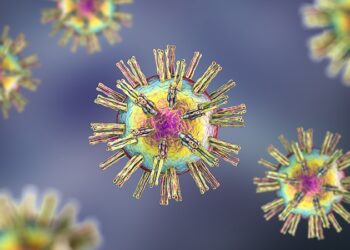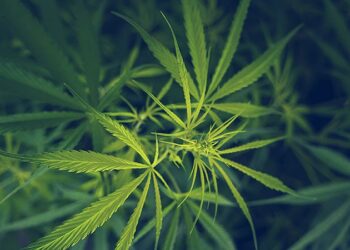LOS ANGELES — Spending time in a forest — an experience known as Shinrin-Yoku, or “forest bathing,” in Japan where the practice originated — can lift mood, reduce stress, and promote physical health, a new literature review suggested.
Most of the studies included in the review reported moderate to strong effect sizes, using validated measures such as the Profile of Mood States (POMS) and physiological indicators like blood pressure.
Taking a walk in the forest appears to be beneficial and may have therapeutic potential, said study investigator Donovan Dennis, a third-year medical student at Michigan State University, East Lansing, Michigan. It’s something physicians could consider prescribing to their patients, he told Medscape Medical News.

The findings were presented on May 18 at the American Psychiatry Association (APA) 2025 Annual Meeting.
Designated Forests
More than half of the world’s population lives in urban environments, where managing stress and maintaining a positive mindset during crises can be difficult. Over time, chronic stress can contribute to anxiety and fatigue.
In response, experts are increasingly exploring alternative and holistic approaches to mental well-being, spurring research into the psychological benefits of immersing oneself in nature, particularly forest settings.
Japan has been a leader in this movement. As of 2019, the country had designated approximately 60 official forestry therapy trails.
The review included 15 studies conducted in Japan, the United States, Poland, and several other countries. Study designs varied: One was a meta-analysis, three were systematic reviews, and the remaining 11 were observational studies or randomized experimental models.
Most participants were considered “healthy,” although some studies included individuals “with depressive tendencies,” said Dennis. The study populations also varied by setting — for example, one study focused on healthcare workers, while another involved patients from a psychiatric hospital.
Although all of the studies examined forest bathing, typically defined as walking in a forest, the practice itself lacks a standardized definition, Dennis noted.
Positive Therapeutic Effects
Most of the studies involved walking in a forest for about 2 hours, twice a week. However, durations varied — some had participants walk for as little as 10 minutes, while others extended sessions to 3 hours, said Dennis.
In some cases, the intervention was defined by distance rather than time; for example, one study involved a 2.5-km walk, and another covered 4 km.
The overall length of the studies also varied, ranging from a few weeks to several months.
Researchers examined both psychological and physiological effects of forest bathing. While most studies used POMS to assess mood, several also measured physiological markers such as serotonin levels, blood pressure, and heart rate, Dennis noted.
The analyses generally showed positive effects of forest therapy on mental health, with some studies also reporting benefits for the cardiovascular and immune systems, as well as improvements in inflammation and antioxidant activity.
“Forest therapy might be therapeutic for folks living with depression or anxiety, but also preventatively to support general wellness, and connectedness with nature,” said Dennis.
However, the review did not clarify the role of factors such as frequency, duration, or seasonality in shaping the benefits of forest therapy, Dennis noted.
While the findings are promising, they do not support forest therapy as a replacement for pharmacological treatment. Larger, well-controlled studies with standardized protocols are needed to confirm its benefits, he said.
Growing Acceptance
Commenting on the research for Medscape Medical News, Environmental Psychologist Sabine Huemer, PhD, assistant professor, School of Psychological Science, Oregon State University, Corvallis, Oregon, said she was surprised but pleased that forest therapy was discussed at a psychiatry conference.
Huemer said she initially believed that psychiatry remained rooted in traditional therapy and medical treatments but now recognizes that the field is expanding to include alternative approaches such as psychedelic-assisted therapy, transcranial magnetic stimulation, and ecotherapy or nature therapy.
Huemer pointed to resources like Park Rx America, which encourage physicians to prescribe time in nature as part of routine healthcare. In Japan, doctors often prescribe forest therapy to stressed businesspeople as a way to “recharge and recover,” she noted.
An eco-therapist herself, Huemer has developed a “mindfulness in nature” program aimed at reducing stress and promoting mental well-being, that draws on the principles of Shinrin-Yoku.
Although the review did not include original data and was based on a limited number of studies, it highlights the rejuvenating effects of nature, Huemer said. She noted that these benefits apply not only to adults but also to children, many of whom are spending less time outdoors.
Huemer and her colleagues have been studying eco-anxiety among US college students. Eco-anxiety — defined as worry about the future of the planet — primarily affects members of Generation Z and younger cohorts, those born in the mid-to-late 1990s, she said. It can interfere with daily functioning and sleep, and often leads to intrusive, recurring thoughts.
Their research, presented in a poster at the APA 2025 Annual Meeting, showed that higher levels of eco-anxiety were associated with personal experiences of climate change and a prior diagnosis of generalized anxiety disorder.
Interestingly, and in contrast to findings from other studies, they did not find that collective activism — such as participation in environmental clubs — served as a buffer against eco-anxiety.
Also commenting on the forest bathing review, Umadevi Naidoo, MD, an instructor in the Department of Psychiatry, Division of Nutrition at Harvard Medical School and Director of Nutritional and Lifestyle Psychiatry at Massachusetts General Hospital in Boston, said she was “happy to see a poster on forest bathing,” noting that it aligns with the focus on lifestyle interventions at the APA 2025 annual meeting.
She noted that forest medicine is gaining acceptance as an additional lifestyle option for patients.
Naidoo, who is often referred to as “America’s Nutritional Psychiatrist,” is a professional chef, nutritional biologist, and author of several books on the impact of food on brain health.
The investigators, Huemer and Naidoo, reported no relevant financial disclosures.
Source link : https://www.medscape.com/viewarticle/growing-evidence-healing-power-forest-therapy-2025a1000dan?src=rss
Author :
Publish date : 2025-05-27 10:14:00
Copyright for syndicated content belongs to the linked Source.














